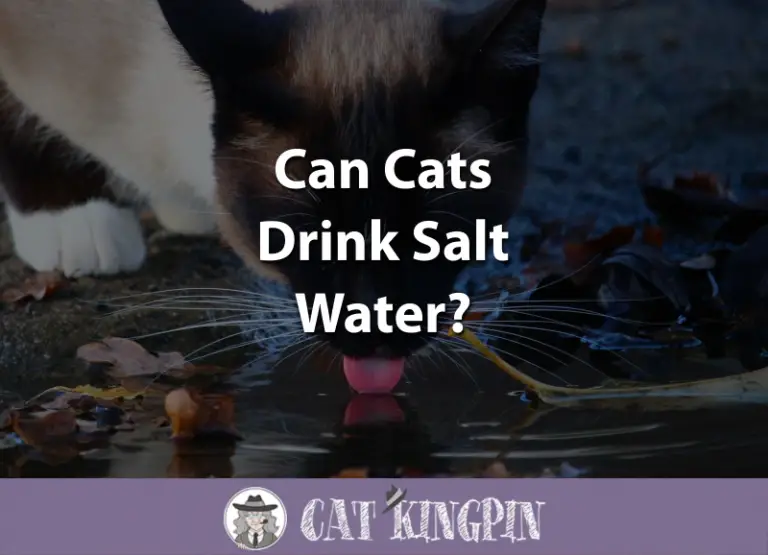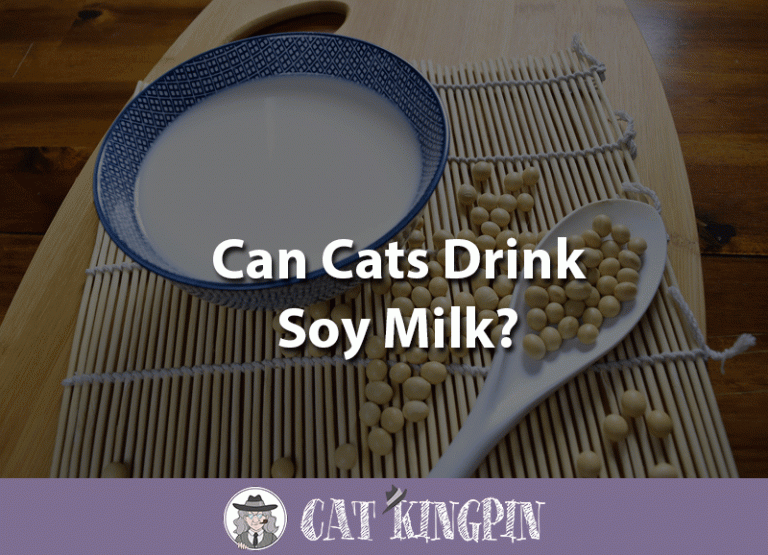Can Cats Drink Tea?
Do you drink tea? Have you ever wondered if this healthy, refreshing beverage is good for your cat? Or, maybe your cat just likes to steal drinks from your glass when you’re not looking. (At our house, they usually take the straws, too).
I am always trying to help my cats live happier, healthier lives. You probably know that tea is linked to a variety of health benefits for people. But, just because it is good for humans, does that mean it’s good for cats too?
In this article we’ll cover the following;
● Cats and Tea, What You Need to Know
● Can Cats Drink Tea?
● Can Kittens Drink Tea?
● Benefits/Drawbacks to Cats Drinking Tea
● Artificial Sweeteners
● Healthy Alternatives to Tea
Cats and Tea, What You Need to Know
From green tea, to oolong, to sweet tea, there is a tea to suit everyone’s taste. Recently, matcha, made from the finely ground powder of specially grown and processed green tea leaves, has become increasingly popular.
In any case, all true teas come from the leaf of the Camellia sinensis plant.
Tea leaves contain a variety of chemical compounds, including stimulants such caffeine, theobromine and theophylline, xanthines, and antioxidants called polyphenols. People often drink tea just for its refreshing effect and some of the chemicals in tea have been shown to have beneficial effects in humans. But, what about cats?
Can Cats Drink Tea?
Some cats like to take a nip of tea every now and then. As you’ll see in the video below, this cat loves dipping the paw right in and takes a sip.
Drinking small amounts, as our friend was doing, likely isn’t an issue. But ingesting large quantities of tea could lead to serious health problems for your cat because of the chemical compounds found in tea.
For example, caffeine consumption can cause cats to experience hyperactivity, restlessness, vomiting, elevated heart rate, elevated blood pressure, abnormal heart rhythms, tremors, and elevated body temperature. In severe cases, seizures and collapse can occur. In rare cases, death can even be a result.
Another substance found in tea is theobromine, which is better known as the chemical in chocolate that causes toxicity in dogs. As cats do not have taste receptors for sweetness, you don’t often hear about chocolate poisoning in cats. However, cats are also affected and may even be more sensitive to theobromine than dogs.
Theobromine can impact a cat’s body in several ways including;
- Increases their heart rate
- Decreasing their blood pressure
- It’s a diuretic, which can increase loss of fluids
- Stimulates their nervous system
- Relaxes their smooth muscles
While most cats won’t be harmed by drinking small amounts of tea, why risk your beloved pet’s health by giving them something that contains chemicals known to be poisonous? If your cat asks for tea, just say, “NO!”
Can Kittens Drink Tea?
In general, the cat’s liver lacks many of the enzymes other mammals have to break down potentially toxic substances. Kittens, with their still developing bodies, are even more sensitive to toxins than adult cats. For this reason alone, you should never let your kitten drink tea. Even in small amounts, it could still be toxic for their system.
Benefits/Drawbacks to Cats Drinking Tea
Cats, like other mammals, need antioxidants in their diet. While the polyphenols in tea might supply a small amount of these healthful substances, the risks from other compounds in tea far outweigh any benefit. Moreover, some tea drinks, such as matcha, pack up to ten times the potency of brewed tea, making it much more dangerous, even in small amounts.
Artificial Sweeteners
Sweetened tea and processed tea beverages often contain artificial sweeteners. This is especially true of those labeled as diet beverages. One sweetener in particular, Xylitol, could pose an extreme danger for cats.
While there have been few recorded cases of Xylitol poisonings in cats, toxicity is well known in dogs. When a dog ingests Xylitol, its body mistakes the chemical for a massive dose of sugar and releases a huge flood of insulin from the pancreas, sending the dog into potentially lethal hypoglycemia (low blood sugar).
As mentioned in regards to chocolate, the cat’s lack of taste receptors for sweetness make it less likely they would try to consume foods or drinks containing Xylitol, however, it is believed they may be even more sensitive than dogs to this artificial sweetener
Healthy Alternatives to Tea
Cats do well on a properly balanced diet from a quality brand. However, if you just have to have tea time with your cat, why not try catnip tea?
If you’re skeptical that catnip tea would be something that your cat would enjoy, the video below may end up changing your mind.
Conclusion
For people, drinking tea is a healthy choice. For cats, the risks associated with drinking tea far outweighs any slight health benefits due to the numerous chemical compounds in tea that are known to have adverse effects on cats. Tea can also contain artificial sweeteners and consumption of Xylitol by cats could lead to a true medical emergency.
If your cat really loves tea and you can’t seem to get them to stop dipping their paws in your cup, it’s a good idea to give the Catnip tea a try to see what they think.
I hope you enjoyed today’s article about cats and tea. Do you have a furry friend who won’t stop sticking their paws in your cup of tea? Have you had experience in letting your cat try catnip tea and had an interesting experience? Please tell us in the comments below, we’d love to hear from you.






